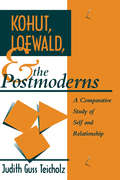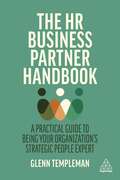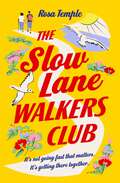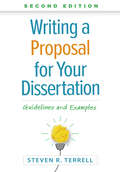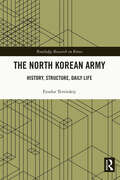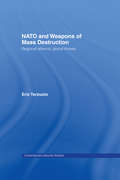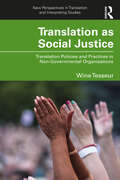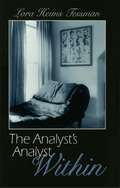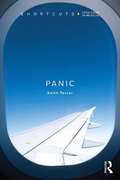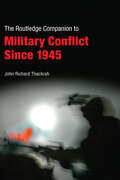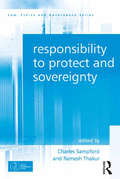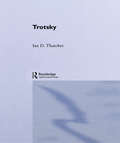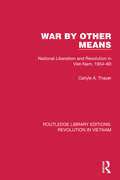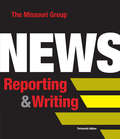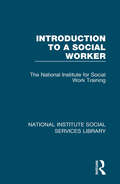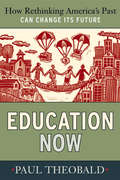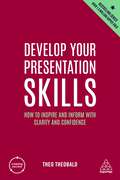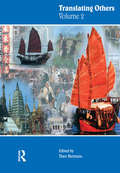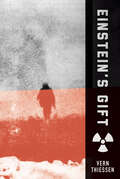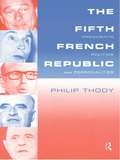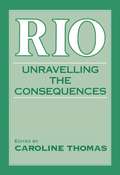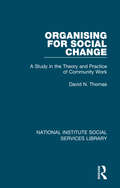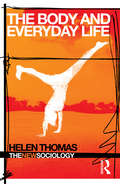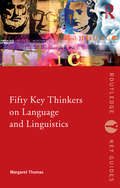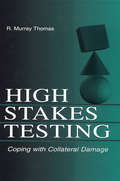Special Collections
Benetech’s Global Certified Accessible Titles
Description: Benetech’s GCA program is the first independent third-party EPUB certification to verify ebook accessibility. By creating content that is born accessible, publishers can meet the needs of all readers. Learn more: https://bornaccessible.benetech.org/
- Table View
- List View
Kohut, Loewald and the Postmoderns
by Judith G. TeicholzIn Kohut, Loewald, and the Postmoderns, Judith Teicholz, using the contemporary critique of Kohut and Loewald as a touchstone of inquiry into the current status of psychoanalysis, focuses on a select group of postmodern theorists whose recent writings comprise a questioning subtext to Kohut's and Loewald's ideas. Acutely aware of the important differences among these theorists, Teicholz nonetheless believes that their respective contributions, which present psychoanalysis as an interactive process in which the analyst's own subjectivity plays a constitutive role in the joint construction of meanings, achieve shared significance as a postmodern critique of Kohut and Loewald. She is especially concerned with the relationship - both theoretically and technically -between Kohut's emphasis on the analyst's empathic resonance with the analysand's viewpoint and affect, and the postmodern theorists' shared insistence on the expression of the analyst's own subjectivity in the treatment situation. Her analysis incorporates fine insight into the tensions and ambiguities in Kohut and Loewald, whose work ultimately emerges as a way station between modern and postmodern viewpoints, and her appreciation of Kohut and Loewald as transitional theorists makes for an admirably even-handed exposition. She emphasizes throughout the various ways in which Kohut and Loewald gave nascent expression to postmodern attitudes, but she is no less appreciative of the originality of postmodern theorists, who address genuine lacunae in the thought and writings of these exemplars of an earlier generation. Teicholz's examination of what she terms two overlapping "partial revolutions" in psychoanalysis - that of Kohut and Loewald on one hand and of the postmoderns on the other - throws an illuminating searchlight on the path psychoanalysis has traveled over the last quarter of the 20th century.
The HR Business Partner Handbook
by Glenn TemplemanHow do I balance delivery of the HR strategy with the needs of the business? How can I solve key people issues while also becoming a true strategic HR business partner? This book has the answers.Packed with expert advice, The HR Business Partner Handbook explains how HR Business Partners can be both the go-to people expert needed by employees and the trusted strategic ally needed by the business. This book covers how to develop an authoritative knowledge of HR practice as well as deep understanding of what the organization does and its business goals. It includes guidance on all the people fundamentals needed as well as the importance of empathy, humility and how to demonstrate leadership on moral and ethical issues. It also covers how to adapt advice and activity for different stakeholders.This book explains how to identify the root of an HR issue and not just treat the symptoms and most importantly, how to develop solutions that work for an organization and its people. There is practical guidance on how to develop a strategic mindset, learn what to start doing and what to stop. It also features an assessment of the common pitfalls and intra-profession challenges and how HR business partners should seek to approach them. Written by an HR Business Partner, for HR Business Partners, this is an indispensable guide for everyone wanting to excel in this role and drive improvement in an organization, its leaders and HR. Finally, a 'how-to' guide for HR business partners at every stage of their career!
The Slow Lane Walkers Club
by Rosa TempleA feel-good tale of unlikely friendship, community and learning to live life in the slow lane, perfect for fans of Clare Pooley and Hazel Prior Daniel isn&’t used to living life in the slow lane. So when he finds himself unexpectedly jobless and back in his old Cornish hometown, he can&’t sit still. Hazel used to be adventurous too. But now widowed and in her eighties, she barely leaves the house. When she sees an advert for Daniel&’s new walking club, she grabs at the chance of some excitement. Daniel&’s heart sinks when he sees that the only person who&’s turned up for his walking club is the crazy old lady from two doors down. But what he doesn&’t expect is to discover that Hazel is one of the most fascinating people he&’s ever met . . .A gorgeous, warm and uplifting story about friendship, community, adventure and the joy of walking.
Writing a Proposal for Your Dissertation
by Steven R. TerrellThe encouraging book that has guided thousands of students step by step through crafting a strong dissertation proposal is now in a thoroughly revised second edition. It includes new guidance for developing methodology-specific problem statements, an expanded discussion of the literature review, coverage of the four-chapter dissertation model, and more. Terrell demonstrates how to write each chapter of the proposal, including the problem statement, purpose statement, and research questions and hypotheses; literature review; and detailed plans for data collection and analysis. "Let's Start Writing" exercises serve as building blocks for drafting a complete proposal. Other user-friendly features include case-study examples from diverse disciplines, &“Do You Understand?&” checklists, and end-of-chapter practice tests with answers. Appendices present an exemplary proposal written three ways to demonstrate quantitative, qualitative, and mixed methods approaches, and discuss how to structure a four-chapter dissertation. New to This Edition *Introduction offering a concise overview of the entire proposal-writing process and the doctoral experience. *Additional help with tailoring problem and purpose statements for quantitative, qualitative, and mixed-methods studies. *Expanded discussion of the review of literature, including a criterion for judging the quality of primary versus secondary sources. *Many new examples from different disciplines, such as studies of depression treatments, approaches to reducing offender recidivism, health effects of irradiated crops, strength training in college football, and remote teaching and learning during COVID-19. *Focus on the five-chapter model is broadened to include specific guidance for four-chapter dissertations. *Broader, more detailed reference list and glossary.
The North Korean Army
by Fyodor TertitskiyThis book focuses on the Korean People’s Army (KPA) - the armed forces of North Korea - covering its history, structural organisation and lives of the soldiers and officers within its ranks. Utilising extensive Korean, English, Russian and Chinese language sources, as well as multiple interviews with people who have served in the KPA, this book provides an illuminating insight into the experience of KPA personnel. It presents fascinating and detailed examples of everyday life in the KPA, such as the systems of discipline and reprimands, the experience of women in the army, typical salaries and daily food allowances. The book also succinctly traces the history of the KPA from its foundation under the guidance of the Soviet Union and the experiences of the Korean War, through to the current iteration under Kim Jong-un. This pioneering work will be of huge interest to students and scholars of North Korea, the Cold War, Military Studies and Communism.
NATO and Weapons of Mass Destruction
by Eric TerzuoloNATO was hugely successful in facing off the Soviet Union during the Cold War. But has it been equally successful in addressing the "new threats" of the post-Cold War era? This new study assesses the organization's political and military initiatives, and how its outreach to Russia, Ukraine, and other countries in the Euro-Atlantic and Mediterranean regions, devoted considerable attention to WMD proliferation risks. It also probes the political factors, both inside and outside NATO, as well as resource constraints, which have limited the alliance's "added value" in the international community's effort to combat proliferation. The events of 11 September 2001 and bitter intra-alliance controversy over the 2003 Iraq intervention have highlighted questions regarding NATO's future role, and even its continued viability. This is a serious reflection on how the alliance should figure in the fight against WMD and terrorist threats and an examination of today's key issues, including the use of force in international relations and the possibility of constructing new, post-Cold War collective security rules. This is the first study to evaluate, critically and in-depth, how a long-standing security organization has adapted - and must continue to adapt - to the global security challenges of our time. This book will be of great interest to all students and scholars of international politics, military history and all readers interested in the future of NATO and international security.
Translation as Social Justice
by Wine TesseurThis book analyzes the translation policies and practices of international non-governmental organizations (INGOs), engaging in critical questions around the ways in which translation can redress power dynamics between INGOs and their beneficiaries and the role of activist researchers in contributing to these debates. The volume examines the duality of translation and interpreting in INGOs, traditionally undervalued and under-resourced while simultaneously acknowledged as a powerful tool in ensuring these organizations work according to their own values of equal access to information, dialogue, and political representation. Drawing on over ten years of ethnographic fieldwork and interview data at a wide variety of INGOs, Tesseur offers unique insights into if and how INGOs plan for translation and interpreting needs while also critically reflecting on her own experience and the ways in which activist researchers like her can ensure social justice efforts are fully reflected in their own working practices. Encouraging a new interdisciplinary research agenda, the volume seeks to raise the profile of language and translation in humanitarian and development contexts and cross-disciplinary dialogue in scholarship on these issues. The book will be of interest to scholars in translation and interpreting studies, sociolinguistics, development studies, and international relations.
The Analyst's Analyst Within
by Lora H. TessmanThe Analyst's Analyst Within is the most illuminating study to date of how psychoanalysts' experiences with their own analysts affect their lives, their loves, and their evolving professional identities. A gifted interviewer with equally gifted interview subjects, Tessman samples different gender combinations and age ranges in showing how the values typifying different eras of psychoanalytic theorizing enter into the meaning and impact of training analyses. Tessman's findings are striking, and they do not end with her discovery of startling differences according to the decade during which a training analysis took place. She also found that neither the theoretical orientation of the training analyst nor his or her technical preferences predicted whether, years later, the analysis would be remembered as satisfying or dissatisfying, as growth promoting or thwarting. Rather, it was the quality of affective engagement that became reliably present, with the figure of the training analyst, inscribed in all his or her particularity, accounting for the perceived sense of a truly productive analytic experience. Tessman's research program, which encompasses her methodology, her skill as an interviewer, and the wisdom and clarity of thought of her participants, lifts this work well beyond the perfunctory debates about psychoanalytic training that recur in the journal literature. The power of The Analyst's Analyst Within resides in compelling individual narratives in which analysts revisit their own treatment past - and the analyst within - with candor, vividness, and often great poignancy. The result is a book that not only supersedes previous studies of the training analysis but also opens a new vista on how and why analysis works when it works and fails when it fails.
Panic
by Keith TesterImpending environmental catastrophe, threat of terrorism, viruses both biological and virtual, disease: there seem to be so many reasons to panic today. But what is panic and why does it happen? This book uses a range of literature from sociology, cultural studies and popular psychology to develop an original analysis of panic in contemporary social life. Bringing together academic literature from a range of disciplines, films, novels and current affairs, it encourages thought about why and how we panic – both individually and collectively. Keith Tester explores how cataclysmic events and smaller-scale episodes expose the fragility of our relationships, institutions and expectations. He shows how thinking about panic reveals key aspects of contemporary social, cultural and personal relationships. Panic is a highly readable and incisive introduction to the subject for students, scholars and all those who want to know what panic means and why it is important.
Routledge Companion to Military Conflict since 1945
by John Richard ThackrahFrom the depths of the Cold War to the War on Terror, The Routledge Companion to Military Conflict since 1945 is an in-depth and comprehensive reference guide to the confrontations that have shaped the modern age. Covering the personalities, the wars and the ideas that have been central to military conflict in the last sixty years, this book includes discussion of: specific campaigns from Vietnam to Iraq international organizations, including NATO, the UN and the Arab League leading historical figures, from Idi Amin to George W. Bush genocides, Proxy wars and the Guerrilla campaigns key concepts in international relations, from Defense to Chemical Warfare the causes of conflict from the religion to the fight for diminishing resources. Exploring all of this and more in an easy to use A-Z format with guides to further reading, this is an essential resource for students of international relations, military history and conflict and strategic studies at all levels.
Responsibility to Protect and Sovereignty
by Ramesh ThakurThe responsibility to protect ('R2P') principle articulates the obligations of the international community to prevent conflict occurring, to intervene in conflicts, and to assist in rebuilding after conflicts. The doctrine is about protecting civilians in armed conflicts from four mass atrocity crimes: genocide, war crimes, crimes against humanity and ethnic cleansing. This book examines interventions in East Timor, Sri Lanka, Sudan and Kosovo. The chapters explore and question UN debates with respect to the doctrine both before and after its adoption in 2005; contrasting state attitudes to international military intervention; and what takes place after intervention. It also discusses the ability of the Security Council to access reliable information and credible and transparent processes to enable it to make a determination on the occurrence of atrocities in a Member State. Questioning whether there is a need to find a closer operational link between the responsibilities to prevent and react and a normative link between R2P and principles of international law, the contributions examine the effectiveness of the framework of R2P for international decision-making in response to mass atrocity crimes and ask how an international system to deal with threats and mass atrocities can be developed in the absence of a central authority. This book will be valuable to those interested in international law, human rights, and security, peace and conflict studies.
Trotsky
by Ian D. ThatcherThis new biography provides a full account of Leon Trotsky's political life, based upon a wealth of primary sources, including previously unpublished material. Ian D. Thatcher paints a new picture of Trotsky's standing in Russian and world history. Key myths about Trotsky's heroic work as a revolutionary, especially in Russia's first revolution of 1905 and the Russian Civil War, are thrown into question. Although Trotsky had a limited understanding of crucial contemporary events such as Hitler's rise to power, he was an important thinker and politician, not least as a trenchant critic of Stalin's version of communism.
War By Other Means
by Carlyle A. ThayerThis book, first published in 1989, examines the creation and implementation of Communist policy in Vietnam during the crucial period between the 1954 Geneva Conference and the establishment of the National Front for the Liberation of South Vietnam in December 1960. This study challenges long-held views about the origins and nature of the Viet Cong. It carefully examines the various stages in the struggle for ‘national liberation’ during this period, reviews the consequences of the failure of purely political means to achieve reunification and then focuses on the struggle between the Diem regime and the Communists.
News Reporting and Writing
by The Missouri GroupNews Reporting & Writing teaches the essential reporting and writing skills within the context of today’s digital media landscape. The Missouri Group, including new author, Beverly Horvit, have extensively revised this edition with diverse examples and a focus on the role of technology to give students a strong foundation in the craft and raise awareness of current issues like fake news and censorship. The team focuses on developing the skills journalists actually use and the many careers in which they, and students, could use them—from working in news, to advertising, to public relations. Much of the text has been rewritten and reorganized to introduce a stronger flow of content paired with the most current coverage of today’s news industry.Available with LaunchPad Solo for Journalism, the perfect tool set for budding media writers. This online resource includes access to News Reporting & Writing’s digital workbook and Exercise Central for AP Style, a resource containing thousands of activities focused on overcoming the most common grammar and style issues journalism students make.
Introduction to a Social Worker
by The National Institute for Social Work TrainingOriginally published in 1964, this was an introduction to social casework, that is social work with individuals and families. It was written for students at the beginning of their training and, while intended for the social worker, it would also prove useful to other students of the social sciences and interesting to the ordinary citizen who wanted to know what social work could offer either to people in trouble or to those who adopted it as a career. The book was both authoritative and up-to-date at the time, in a field in which methods of training had evolved quite rapidly. To this its origin bears witness: the preparatory work was done by Miss Florence Mitchell, an experienced social worker and teacher of social casework. The book was shaped in consultation with other practitioners and teachers, including Dr Younghusband and Miss K. M. Lewis of the National Institute whose work had done so much to shape modern methods of training. The first chapter gives a picture of people who need the social worker’s help. It is followed by a brief survey of methods, by three chapters of case studies and by a final chapter on social work in the social services. The book thus combines a philosophy with practical guidance.
Education Now
by Paul TheobaldEducation Now is a clear and persuasive account of the way in which popular seventeenth- and eighteenth-century theories about the human condition formed the basis for America's choices in the realms of politics, economics, and education. Theobald chronicles the fate of alternative, less popular ideas about the human condition-ideas that would have led to vastly different political, economic, and educational landscapes than those we experience today. This book exposes the flaws among prevalent theories and the strength of those alternatives that were dismissed or ignored. In so doing, Theobald points the way toward substantive changes across three dimensions ubiquitous to human life: politics, economics, and education.
Develop Your Presentation Skills
by Theo TheobaldProvides step-by-step advice to prepare effectively and nail that presentation. This quick and easy guide provides a practical toolkit for developing a winning presentation and improving your confidence. Complete with case studies and expert input to help you avoid disaster, Develop Your Presentation Skills includes content to help you to deliver a presentation 'stripped bare' and to use new media to engage with your audience. This fully updated 5th edition now features even more practical exercises, useful templates and top tips to help you find your voice and use it with style; to inform, to persuade, to impress. From unpicking the original brief and understanding just what the audience wants, to facing your performance demons and constructing compelling content, you will keep your audience rapt with attention.The Creating Success series of books...Unlock vital skills, power up your performance and get ahead with the bestselling Creating Success series. Written by experts for new and aspiring managers and leaders, this million-selling collection of accessible and empowering guides will get you up to speed in no time. Packed with clever thinking, smart advice and the kind of winning techniques that really get results, you'll make fast progress, quickly reach your goals and create lasting success in your career.
Translating Others (Volume 2)
by Theo HermansBoth in the sheer breadth and in the detail of their coverage the essays in these two volumes challenge hegemonic thinking on the subject of translation. Engaging throughout with issues of representation in a postmodern and postcolonial world, Translating Others investigates the complex processes of projection, recognition, displacement and 'othering' effected not only by translation practices but also by translation studies as developed in the West. At the same time, the volumes document the increasing awareness the the world is peopled by others who also translate, often in ways radically different from and hitherto largely ignored by the modes of translating conceptualized in Western discourses. The languages covered in individual contributions include Arabic, Bengali, Chinese, Hindi, Irish, Italian, Japanese, Latin, Rajasthani, Somali, Swahili, Tamil, Tibetan and Turkish as well as the Europhone literatures of Africa, the tongues of medieval Europe, and some major languages of Egypt's five thousand year history. Neighbouring disciplines invoked include anthropology, semiotics, museum and folklore studies, librarianship and the history of writing systems. Contributors to Volume 2: Paul Bandia, Red Chan, Sukanta Chaudhuri, Annmarie Drury, Ruth Evans, Fabrizio Ferrari, Daniel Gallimore, Hephzibah Israel, John Tszpang Lai, Kenneth Liu-Szu-han, Ibrahim Muhawi, Martin Orwin, Carol O'Sullivan, Saliha Parker, Stephen Quirke and Kate Sturge.
Einstein's Gift
by Vern ThiessenEinstein’s Gift follows the life and work of Nobel laureate Dr. Fritz Haber, a man who risked everything for a country that never accepted him. Haber, a chemist who worked hard to enhance life, discovered too late that when his knowledge was put in the hands of the wrong people, millions would die and that his efforts to serve humanity were futile against political will, nationalism, and war. This updated edition of Vern Thiessen’s compelling play about the collision of power and pride still resonates with verve and vigour.
The Fifth French Republic
by Philip ThodyThe Fifth French Republic is a study of modern French politics and history, discussing the five presidents who span from 1959 to the present--Charles de Gaulle, Georges Pompidou, Valry Giscard d'Estang, Fran5~ois Mitterand and Jacques Chirac.Philip Thody examines the importance of the similarities between the five men for an understanding of the general and political culture of France; the similarities and differences in the foreign policies pursued by the five presidents, including anti-Americanism; France's role in the European Union and her attitude to the Cold War; French domestic policies and administrative practices, attempts to decentralize the state, the role of the French civil service, the problem of immigration and the rise of the National Front.
Rio
by Caroline ThomasThe interdisciplinary collection of essays investigates whether UNCED and its output were appropriate for averting global environmental and developmental catastrophe. The intellectual debate inside and outside UNCED has been dominated by powerful entrenched interests which marginalise rival interpretations of the crisis and block possible alternative ways forward. The crisis is therefore being tackled by a continuation of the very policies that largely caused it in the first place.
Organising for Social Change
by David N. ThomasOriginally published in 1976, the aim of this book was to understand the contribution of community work to meeting some of the problems to be found in many of Britain’s inner city neighbourhoods. It describes the community work process and the tasks, roles and skills of the professional community worker as he interacts with neighbourhood groups and service agencies. The author also indicates some of the strengths of collective action and its likely benefits and costs to those who participate. The book includes an examination of how to effect changes in the delivery of services from statutory and voluntary agencies, as well as an assessment of the community project of which the author was a staff member. The book is a contribution to the theory of community work and practice, and it is based upon the experience of those who worked in, and used, the Southwark Community Project, established by the National Institute for Social Work. It was written for practitioners, teachers and students of community work, as well as for other closely involved in community affairs such as teachers, playground workers, planners and social workers.
The Body and Everyday Life
by Helen ThomasIn recent years, there has been an explosion of interest in the contemporary social study of the body which has raised important theoretical and methodological questions regarding traditional social and cultural analysis. It has also generated corporeal theories that highlight the fluid, shifting, yet situated character of the body in society. In turn, these corporeal theories have implications for social relations in an era of new technologies and global market economies. The Body and Everyday Life offers a lively and comprehensive introduction to the study of the body. It uses case studies in performance practices to examine the key concepts, methods and critical insights gained from this area. It includes sections on: ethnographies of the body bodies of performance performing gender the ageing performing body. This book clearly illustrates the complex relationships that exist between the body, society and everyday life, and considers the negative and positive implications for the development of future socio-cultural analysis in the field. It will be an invaluable introduction for students of sociology, body studies, gender studies, dance and performance, and cultural studies.
Fifty Key Thinkers on Language and Linguistics
by Margaret ThomasWhat was the first language, and where did it come from? Do all languages have properties in common? What is the relationship of language to thought? Fifty Key Thinkers on Language and Linguistics explores how fifty of the most influential figures in the field have asked and have responded to classic questions about language. Each entry includes a discussion of the person’s life, work and ideas as well as the historical context and an analysis of his or her lasting contributions. Thinkers include: Aristotle Samuel Johnson Friedrich Max Müller Ferdinand de Saussure Joseph H. Greenberg Noam Chomsky Fully cross-referenced and with useful guides to further reading, this is an ideal introduction to the thinkers who have had a significant impact on the subject of Language and Linguistics.
High-Stakes Testing
by R. Murray ThomasThe federal government's No Child Left Behind Act has thrust high-stakes testing - its goals, methods, and consequences - into the educational limelight. The four-fold purpose of this book is to: describe the nature of high-stakes testing; identify types of collateral damage that have attended the testing programs; analyze methods different groups of people have chosen for coping with the damage and suggest lessons to be learned from the high-stakes-testing experience. The six groups of people whose coping strategies are inspected include: politicians and their staffs; educational administrators and their staffs; parents and the public; test makers and test administrators; teachers and students. Importantly, the author avoids aligning himself with the test-bashing rhetoric of those who oppose high-stakes testing, especially the No Child Left Behind Act.Key features of this outstanding new book include: illustrative cases. The book offers more than 350 cases of collateral damage from high-stakes testing--and people's coping strategies--as reported in newspapers over the 2002-2004 period. background perspectives. Part I examines the influence of high-stakes testing on: 1) what schools teach; 2) how student progress is evaluated; 3) how achievement standards are set; and 4) how test results are used. participant responses. Part II, which is the heart of the book, devotes a separate chapter to the coping strategies of each of the major participants in the high-stakes testing movement: politicians and their staffs, educational administrators and their staffs, parents and the public, test-makers and test-givers, teachers, and students. summary chapter. The last chapter (Lessons to Learn) offers suggestions for minimizing collateral damage by adopting alternative approaches not used in the creation of our current high-stakes testing programs, particularly the federal government's No Child Left Behind Act. This book is appropriate for any of the following audiences: students taking evaluation or administration courses in schools of education, inservice administrators and teachers, policy makers, and those members of the general public who are concerned about the fate of schooling in America.
